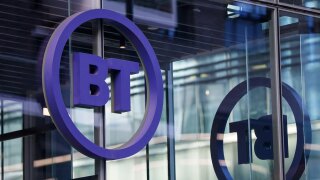Neither AT&T nor FirstNet, the US government authority charged with awarding the 25-year contract, have commented on the status of the project, but FirstNet’s CEO, Mike Poth, welcomed the decision.
“We are pleased with the court’s decision. This is a positive development for FirstNet and the public safety community. FirstNet intends to move expeditiously to finalise the contract for the nationwide public safety broadband network.”
AT&T also commented on the court decision: “We are pleased by the court’s ruling as it allows FirstNet to select its partner and jump-start the process of delivering America’s first nationwide broadband network dedicated to public safety. We would be honoured to be selected and help fulfil FirstNet’s important public safety mission.”
AT&T is the only remaining bidder for the nationwide contract, after the exclusion of the bid by Rivada Mercury, a joint venture between Irish businessman Declan Ganley’s Rivada Networks and vendors including Fujitsu, Nokia, Harris and Black & Veatch.
However Rivada Mercury can still bid for individual states’ networks. Under the terms of the rules that set up FirstNet, AT&T will have to complete a network plan for each of 50 states and six other territories. Governors of the 56 will then have the opportunity to accept AT&T’s proposals or to build their own radio networks.
The timescale is tight: six months for AT&T to complete the network plan; three months for states and territories to decide whether to opt out; and then a further six months for the opting-out states to design their own networks, which must be compatible with the nationwide network.
Rivada Mercury said it “is already working with New Hampshire on an alternative plan for that state – should it decide to opt out – and is bidding on similar work in other states”.
Ganley, co-CEO of Rivada Mercury and chairman of Rivada Networks, said: “We want America’s governors to know that Rivada’s solution remains available to them even if FirstNet ultimately chooses a different approach.”
After the court decision he tweeted: “Remember, whoever get the FirstNet Fed contract then must get states to sign up, state by state. Every state has an opt-out right.”
According to Ganley, Rivada won the right to design a network for New Hampshire in competition with four other bidders. Alabama, Arizona and Michigan have all sought proposals from rival providers, he said. California is also understood to have requested proposals.
Joe Euteneuer, former CFO of Sprint who is also co-CEO of Rivada Networks, said: “We are fully prepared to execute our plan to work with the states to build state-of-the art, dedicated networks for public safety. We applaud New Hampshire’s recognition of Rivada’s experienced management team, technology, and technical expertise and believe many other states will make a similar selection.”
Euteneuer is one of a number of former Sprint executives who are part of the Rivada team.
Though FirstNet has not formally announced its decision in favour of AT&T, Euteneuer accepted the decision: “FirstNet has made its choice. Now it is time for states to make theirs. Those that stand by idly will be forced into a federal solution that may or may not suit their needs or budgets. We look forward to working with the states to ensure that they receive a network equal to the promise made to public safety when FirstNet was created.”
The next step from FirstNet is to hold a board meeting at which it will formally accept AT&T’s bid. According to FirstNet’s calendar, no board meeting is yet scheduled.
As part of the deal AT&T will get 20MHz of spectrum in the 700MHz band, which it will be able to use – when not needed for emergency services – for its own commercial operations. AT&T is likely to get $6.5 billion for the FirstNet contract.





